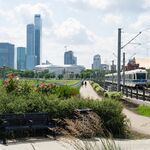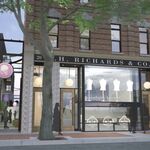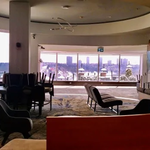I would really really like to chime in. Just not now.
I've had experience with poverty, on both ends of the scale.
Also, I have worked for a number of years with marginalized communities from Special Needs to within the jail system: to workshops/teachings on Reserves (from the NWT to southern AB), volunteered a the Stan Daniels Healing Centre taking inmates out to Sweat Lodges and such for a few years, etc. None of this in the last 10 years, but I'm still really keen on discussing what we can do.
I didn't want to come across as not caring, or from some "privileged" class. My thoughts as of now are that vandalism/graffiti need to be handled quickly, and I'm willing to learn much more about deeper solutions to this long term issue.
Right, that's fair. I think things kind of spiraled and got into tangents that don't really serve the core discussion. For me, I came into this discussion because I saw a bunch of people complaining about some graffiti in the vicinity of Ezio Faraone Park and the High Level Bridge (so not the strawman Ken fed me about people's homes). To me, that is a really minor "problem" in the grand scheme of things, and I don't really care about it, so I commented on there being more important things. Treating things like graffiti as a problem is also what opened up the idea of broken windows theory, which funnily enough, Ian then commented on, citing its supposed seriousness. Now, I get why he might view the theory as such -- it is commonly taught in urban planning school (unsure if that's his background but obviously the people he encircles) and also as someone with interest in the business community of downtown, and therefore in its revitalization via gentrification, broken windows theory actually aids in his hopes of accomplishing a "vibrant downtown".
I feel like I need to explain broken windows theory now. It is basically a criminology theory from the early '80s stating that something which is indicative of a kind of dilapidation in a community, such as a broken window or graffiti, is a sign of "social disorder" apparently, and will draw in more crime. So, in order to tackle this crime, you need an increased police presence, punishing people for minor offenses, such as loitering, transit fare evasion, and stealing, so that it deters more violent crime. It was subsequently widely cited and was influential on 'tough-on-crime' municipal policies in various cities, most notably New York, in the 1990s. It has also been widely panned. Further studies have found little correlation and causal link between supposed disorder or antisocial behaviour and crime. Focusing on minor offenses, like fare evasion, essentially criminalizes being poor. Putting these folks in jail or fining them further sets them back in a system that has already worked so hard against them. It can make it harder to pay bills or even hold down employment. It also fails to address the root, namely some people simply need to get around but cannot afford the transit fare. Instead of looking to solutions to help poor and marginalized people, municipal governments and their friends have made their existence criminal. However, sweeping a neighbourhood of poor people, via fines, imprisonment, violence, and alienation, under the ideology of broken windows, is extremely profitable for people connected to real estate and business communities, as it makes it easier to gentrify these areas and make them 'desirable'. Terms like disorder and antisocial behaviour are also vague and give police the authority to use their own discretion as to what that means and are able to use force against poor people just living their lives. Also criminalizing certain behaviour, such as panhandling, can actually have more adverse effects on crime. Think of why someone may be asking for people's money on the street and if they are forced to stop doing that, but still need money to essentially exist, they may look at more serious offenses, such as breaking into someones home to steal a TV so they can pawn it for $30.
So, really, Ian is perhaps correct that broken windows theory is no joke, after all it has produced very harmful effects, particularly racialized communities (it was the inspiration for stop-and-frisk laws, IIRC), but it isn't a theory to be taken seriously as something to be implemented, as he seemed to suggest.
To bring it back to graffiti, again I have to ask why municipal resources must be utilized ASAP for the cleaning up of some spray paint on a bridge so that it basically looks nicer for some people? Why not look at why certain folks are doing graffiti at public sites and instead fund community orgs and things like housing and other basic needs for people? Obviously, it does not have to be an either-or situation, and you can do both, and removing graffiti doesn't necessarily have to descend into broken windows policing, but often times municipal governments will look at the one (the graffiti) as a nuisance to people it feels more beholden to due to their influence/power, without helping communities that may turn to crime out of necessity.




